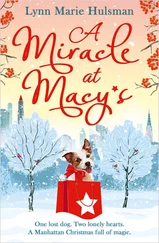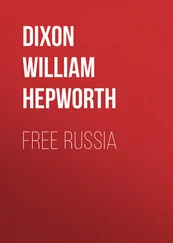Nikolai Nekrasov - Who Can Be Happy and Free in Russia?
Здесь есть возможность читать онлайн «Nikolai Nekrasov - Who Can Be Happy and Free in Russia?» весь текст электронной книги совершенно бесплатно (целиком полную версию без сокращений). В некоторых случаях можно слушать аудио, скачать через торрент в формате fb2 и присутствует краткое содержание. Год выпуска: 2005, Жанр: Поэзия, на английском языке. Описание произведения, (предисловие) а так же отзывы посетителей доступны на портале библиотеки ЛибКат.
- Название:Who Can Be Happy and Free in Russia?
- Автор:
- Жанр:
- Год:2005
- ISBN:нет данных
- Рейтинг книги:3 / 5. Голосов: 1
-
Избранное:Добавить в избранное
- Отзывы:
-
Ваша оценка:
- 60
- 1
- 2
- 3
- 4
- 5
Who Can Be Happy and Free in Russia?: краткое содержание, описание и аннотация
Предлагаем к чтению аннотацию, описание, краткое содержание или предисловие (зависит от того, что написал сам автор книги «Who Can Be Happy and Free in Russia?»). Если вы не нашли необходимую информацию о книге — напишите в комментариях, мы постараемся отыскать её.
Who Can Be Happy and Free in Russia? — читать онлайн бесплатно полную книгу (весь текст) целиком
Ниже представлен текст книги, разбитый по страницам. Система сохранения места последней прочитанной страницы, позволяет с удобством читать онлайн бесплатно книгу «Who Can Be Happy and Free in Russia?», без необходимости каждый раз заново искать на чём Вы остановились. Поставьте закладку, и сможете в любой момент перейти на страницу, на которой закончили чтение.
Интервал:
Закладка:
The pope, too, is silent.
"Who is it you tremble
To meet in the roadway [10] There is a superstition among the Russian peasants that it is an ill omen to meet the "pope" when going upon an errand.
For fear of misfortune?"
The peasants stand shuffling
Their feet in confusion.
"Of whom do you make
Little scandalous stories? 230
Of whom do you sing
Rhymes and songs most indecent?
The pope's honoured wife,
And his innocent daughters,
Come, how do you treat them?
At whom do you shout
Ho, ho, ho, in derision
When once you are past him?"
The peasants cast downwards
Their eyes and keep silent. 240
The pope too is silent.
The peasants stand musing;
The pope fans his face
With his hat, high and broad-rimmed,
And looks at the heavens….
The cloudlets in springtime
Play round the great sun
Like small grandchildren frisking
Around a hale grandsire,
And now, on his right side 250
A bright little cloud
Has grown suddenly dismal,
Begins to shed tears.
The grey thread is hanging
In rows to the earth,
While the red sun is laughing
And beaming upon it
Through torn fleecy clouds,
Like a merry young girl
Peeping out from the corn. 260
The cloud has moved nearer,
The rain begins here,
And the pope puts his hat on.
But on the sun's right side
The joy and the brightness
Again are established.
The rain is now ceasing….
It stops altogether,
And God's wondrous miracle,
Long golden sunbeams, 270
Are streaming from Heaven
In radiant splendour.
"It isn't our own fault;
It comes from our parents,"
Say, after long silence,
The two brothers Goóbin.
The others approve him:
"It isn't our own fault,
It comes from our parents."
The pope said, "So be it! 280
But pardon me, Christians,
It is not my meaning
To censure my neighbours;
I spoke but desiring
To tell you the truth.
You see how the pope
Is revered by the peasants;
The gentry—"
"Pass over them,
Father—we know them." 290
"Then let us consider
From whence the pope's riches.
In times not far distant
The great Russian Empire
Was filled with estates
Of wealthy Pomyéshchicks. [11] Landowners
They lived and increased,
And they let us live too.
What weddings were feasted!
What numbers and numbers 300
Of children were born
In each rich, merry life-time!
Although they were haughty
And often oppressive,
What liberal masters!
They never deserted
The parish, they married,
Were baptized within it,
To us they confessed,
And by us they were buried. 310
And if a Pomyéshchick
Should chance for some reason
To live in a city,
He cherished one longing,
To die in his birthplace;
But did the Lord will it
That he should die suddenly
Far from the village,
An order was found
In his papers, most surely, 320
That he should be buried
At home with his fathers.
Then see—the black car
With the six mourning horses,—
The heirs are conveying
The dead to the graveyard;
And think—what a lift
For the pope, and what feasting
All over the village!
But now that is ended, 330
Pomyéshchicks are scattered
Like Jews over Russia
And all foreign countries.
They seek not the honour
Of lying with fathers
And mothers together.
How many estates
Have passed into the pockets
Of rich speculators!
O you, bones so pampered 340
Of great Russian gentry,
Where are you not buried,
What far foreign graveyard
Do you not repose in?
"Myself from dissenters [12] Dissenters in Russia are subjected to numerous religious restrictions. Therefore they are obliged to bribe the local orthodox pope, in order that he should not denounce them to the police.
(A source of pope's income)
I never take money,
I've never transgressed,
For I never had need to;
Because in my parish 350
Two-thirds of the people
Are Orthodox churchmen.
But districts there are
Where the whole population
Consists of dissenters—
Then how can the pope live?
"But all in this world
Is subjected to changes:
The laws which in old days
Applied to dissenters 360
Have now become milder;
And that in itself
Is a check to pope's income.
I've said the Pomyéshchicks
Are gone, and no longer
They seek to return
To the home of their childhood;
And then of their ladies
(Rich, pious old women),
How many have left us 370
To live near the convents!
And nobody now
Gives the pope a new cassock
Or church-work embroidered.
He lives on the peasants,
Collects their brass farthings,
Their cakes on the feast-days,
At Easter their eggs.
The peasants are needy
Or they would give freely— 380
Themselves they have nothing;
And who can take gladly
The peasant's last farthing?
"Their lands are so poor,
They are sand, moss, or boggy,
Their cattle half-famished,
Their crops yield but twofold;
And should Mother Earth
Chance at times to be kinder,
That too is misfortune: 390
The market is crowded,
They sell for a trifle
To pay off the taxes.
Again comes a bad crop—-
Then pay for your bread
Three times higher than ever,
And sell all your cattle!
Now, pray to God, Christians,
For this year again
A great misery threatens: 400
We ought to have sown
For a long time already;
But look you—the fields
Are all deluged and useless….
O God, have Thou pity
And send a round [13] There is a Russian superstition that a round rainbow is sent as a sign of coming dry weather.
rainbow
To shine in Thy heavens!"
Then taking his hat off
He crossed himself thrice,
And the peasants did likewise.
"Our village is poor 411
And the people are sickly,
The women are sad
And are scantily nourished,
But pious and laborious;
God give them courage!
Like slaves do they toil;
'Tis hard to lay hands
On the fruits of such labour.
"At times you are sent for 420
To pray by the dying,
But Death is not really
The awful thing present,
But rather the living—
The family losing
Their only support.
You pray by the dead.
Words of comfort you utter,
To calm the bereaved ones;
And then the old mother 430
Comes tottering towards you,
And stretching her bony
And toil-blistered hand out;
You feel your heart sicken,
For there in the palm
Lie the precious brass farthings!
Of course it is only
The price of your praying.
You take it, because
It is what you must live on; 440
Интервал:
Закладка:
Похожие книги на «Who Can Be Happy and Free in Russia?»
Представляем Вашему вниманию похожие книги на «Who Can Be Happy and Free in Russia?» списком для выбора. Мы отобрали схожую по названию и смыслу литературу в надежде предоставить читателям больше вариантов отыскать новые, интересные, ещё непрочитанные произведения.
Обсуждение, отзывы о книге «Who Can Be Happy and Free in Russia?» и просто собственные мнения читателей. Оставьте ваши комментарии, напишите, что Вы думаете о произведении, его смысле или главных героях. Укажите что конкретно понравилось, а что нет, и почему Вы так считаете.











